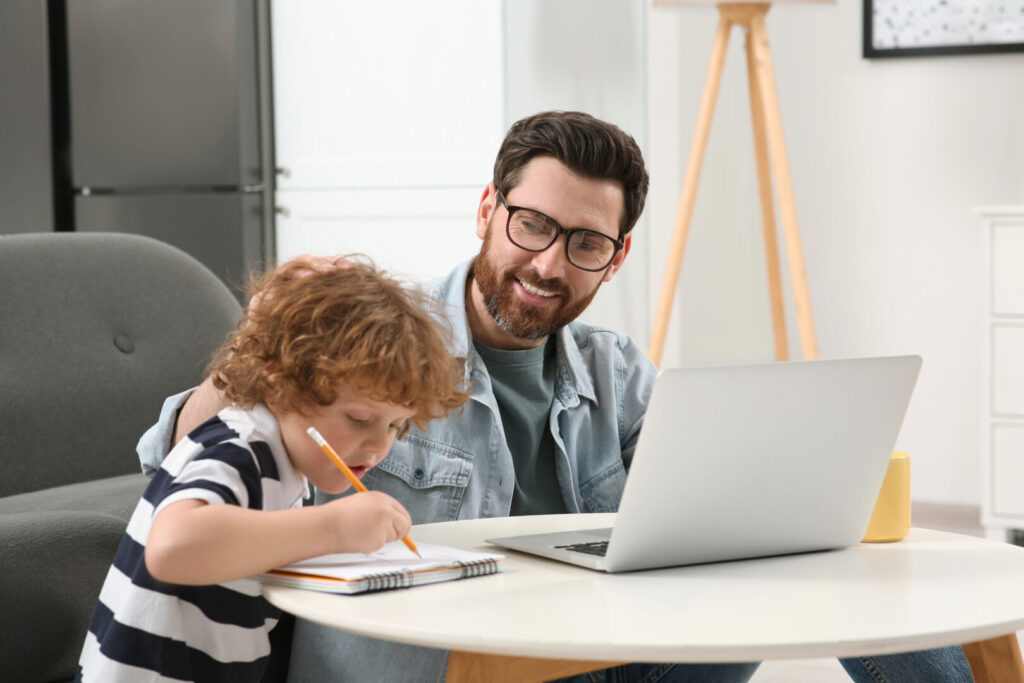
All of Universikid’s courses have been developed in collaboration with professional experts in the field of childhood and are constantly monitored by educationalists and child psychologists.
It is well-known that artistic disciplines play a very important role in the developmental growth of children, yet traditional schooling focuses on the development of critical and rational thinking. For this reason, Universikid, through its courses, offers parents a tool to complement their children’s educational portfolio by proposing an innovative and alternative learning methodology that emphasizes artistic practice.
Analysis by experts emphasizes the significant correlation between children’s exposure to creative artistic experiences and their cognitive, emotional, motor, and sensory development.
Art is crucial for the growth of every individual, enhancing their expressive, logical, mathematical, and linguistic abilities. Consequently fostering critical thinking and problem-solving. Important scholars in pedagogy and cognitive psychology, such as Maria Montessori and Jean Piaget, have argued that children need to “do” more than they need theory to learn. Through artistic activity, it is possible to engage different cognitive functions using the five senses and acquire skills through direct experience. Piaget defined this as the “concrete operational phase” from seven to eleven years of age.
Moreover, Universikid’s courses are designed as a first point of contact with art for younger children, allowing them to develop a passion for it or nurture an already existing predisposition in a simple and enjoyable manner.
Discover some of the skills that can be developed or reinforced through Universikid’s courses.
CONCENTRATION - ATTENTION - PERSEVERANCE - CALMNESS
The short duration of the episodes and the vocal explanations enable children to maintain attention and concentration. The teacher’s suggestions and encouragement prompt children to achieve the set objectives and complete the tasks, always without striving for excessive perfection.
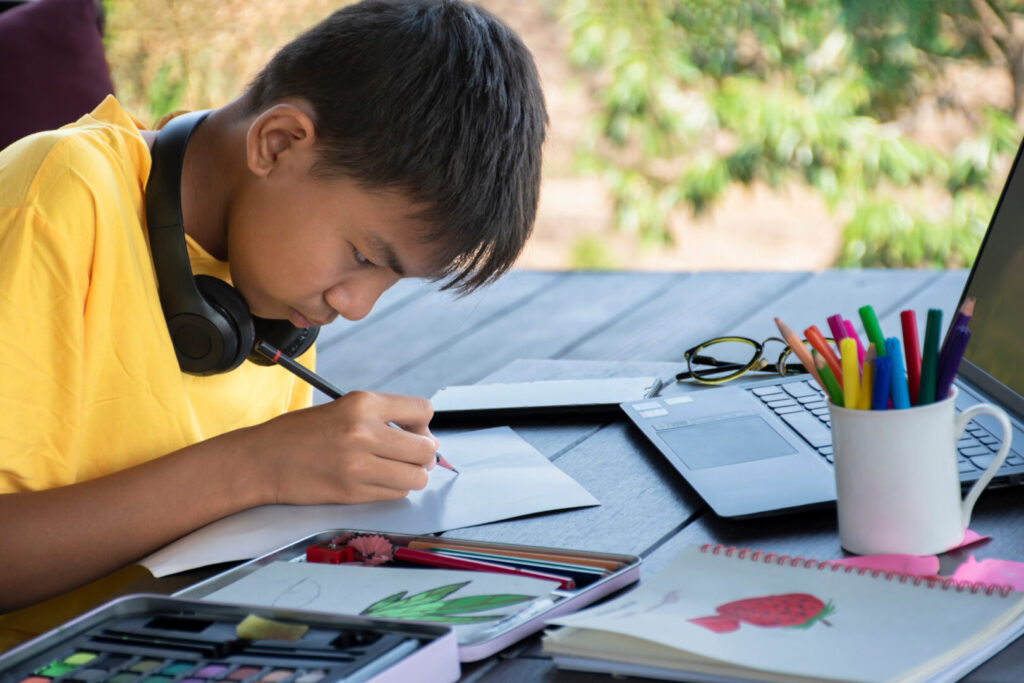
SELF-ESTEEM - RELAXATION
All episodes of Universikid’s courses contain important messages for a child’s evolving personality, such as believing in oneself and one’s dreams, learning to express their thoughts, and using imagination to create new objects. Building a personal work helps children feel competent, providing a source of great satisfaction and consequently maintaining a level of self-esteem. Some activities, like playing with sand (in the course on Japanese Gardens), are enjoyable and relaxing, suitable for children’s psychomotor development. Among the many benefits it brings, art frees the child from stress, is a good way to alleviate frustrations related to daily life, and an excellent tool for spiritual self-regulation.
EXPRESSIVENESS - EMOTION RECOGNITION - EMPATHY
Expressiveness in visual arts is the ability to show feelings and moods through the gestures and facial expressions of figures. Constructing a human face, with its various facial expressions, becomes a useful tool for recognizing one’s own emotions and those of others. Drawing is the primary form of communication for children, thus a good strategy to express their fears and difficulties.

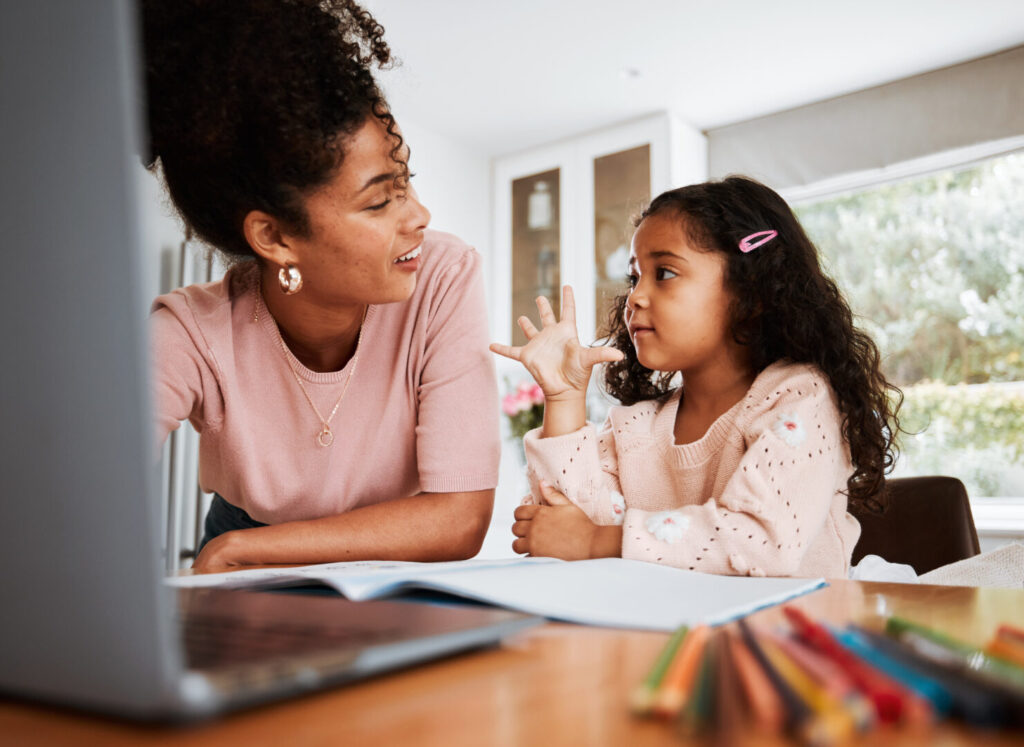
MANUAL DEXTERITY - FINE MOTOR SKILLS - COORDINATION
“Fine motor skills” encompass the control and coordination of the distal musculature of the hands and feet (Pitchford, 2013). Fine motor skills are influenced by postural control, proprioception, eye to hand coordination, and visual-motor integration. These skills enable children to be independent in many daily life actions, such as tying shoelaces or correctly holding cutlery, both at school and at home. Furthermore, there is a close correlation between fine motor skills and cognitive abilities, such as mathematical skills, and developing these skills is essential to mastering writing.
SENSORY PERCEPTION - AWARENESS OF THE WORLD
The various artistic activities offered by Universikid’s courses seek to stimulate all five senses in children. For example, using different materials with various textures engages the sense of touch. The course on Musical Instruments aims to develop musical intelligence by discovering sounds from traditional instruments as well as those from different world cultures. Playing with colors, shapes, and perspectives hones visual abilities. Through sensory perception, children can develop a better awareness of the world around them.
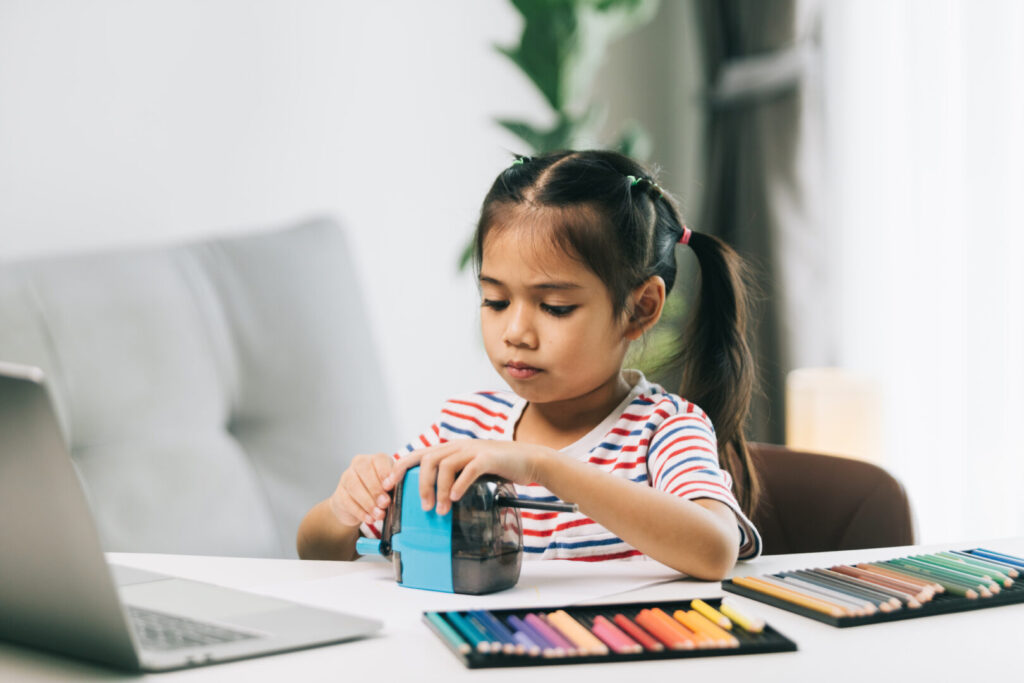
IMAGINATION - CREATIVITY - SYMBOLIC PLAY - ABSTRACT REASONING
Symbolic play (or “pretend play”) is a mode of play in which a child represents, using available material, something that is not actually present. The child “interprets” a story that becomes an expression within their emotional and relational sphere, within their inner world. These “fictional” stories help in self-discovery and emotional processing, mediating between reality and their desires. The unique quality of symbolic play is in exercising imagination and creativity, as well as developing self-awareness. Drawing becomes a useful tool for children to indulge in their own fantasy, imagination, and creativity. When speaking of “creativity,” it refers to a set of cognitive and affective aspects that can find expression in various modes. The creative process usually comprises two main phases: an initial phase in which the mind imagines possible solutions to a problem, and a second exploratory phase, evaluating the best choices (Finke et al., 1996). During this process, the child must be free to experiment in a stimulating and safe environment, without fear of judgment.
PROBLEM SOLVING - ANALYTICAL SKILLS - DIVERGENT THINKING - FLEXIBLE THINKING - CRITICAL THINKING
Divergent thinking is the ability to produce solutions that are simultaneously original, unusual, and effective in response to a given task or problem. Divergent thinking is closely related to creativity, and according to J.P. Guilford, an influential American psychologist, it can be measured based on four fundamental indices:
- Fluency, indicating the number of ideas generated.
- Flexibility, signifying the ability to adopt different strategies and the agility to shift from one task to another requiring a different approach.
- Originality, the aptitude to generate unique and personal ideas different from those produced by the majority.
- Elaboration, the ability to give substance to one’s ideas.
Flexible thinking allows us to solve new problems and overcome everyday life obstacles. This type of thinking arises from bottom-up processes, cognitive processes stemming from sensory input and contact with external stimuli. A flexible thinker is capable of employing a wide range of cognitive strategies and can operate both automatically and consciously. It’s crucial, especially for children, to learn to process information by creating new cognitive patterns that allow them to abandon automatism and subsequent cognitive closure.
MATHEMATICAL THINKING - GEOMETRIC SHAPES - PERSPECTIVE - TWO-DIMENSIONAL AND THREE-DIMENSIONAL - TEMPORAL NOTIONS - ABSTRACT THINKING
Space and time strongly influence movement, which is both a spatial and temporal phenomenon.
The initial perceptions of time are closely linked to the movement of gestures (fast, slow, etc.), just as the external space is perceived as distance from oneself and direction in relation to oneself. The grasp of distance and direction occurs through two primary information channels:
- Proprioception, informing us about the movement of various body segments in space.
- Vision, allowing us to understand distance and direction, such as the hand trying to grasp an object.
The internalization of external space and time leads to the development of internal space and time. Therefore, through the experience gained from overall movement, the child constructs a preliminary outline of the body schema and simultaneously experiences that “body” and “things” have their place in space, their mutual orientation, and that between desire and satisfaction, there is a temporal duration.
Arranging objects in space and their relationships to each other help spatial orientation, while the sequentiality of action promotes the enhancement and development of temporal orientation. In drawing, complex representations of characters require an understanding of perspective, spatial indications (above/below, right/left, etc.), and temporal ones (before/after, day/night, etc.). In three-dimensional constructions, successfully assembling diverse objects requires understanding geometric shapes, dimensions, and more in-depth spatial concepts (near/far, full/empty, etc.). These early experiences introduce children to exercises in abstract thinking, hypothesizing, and becoming aware of and recognizing the differences between what is real and what is fantastical.
AESTHETIC SENSE - PERSONAL OPINIONS
Refining the aesthetic sense and educating children about “beauty” from the earliest moments of childhood is crucial. From an educational perspective, it’s not simply about teaching children to blandly identify what is “beautiful” or “ugly,” but it’s more important to help children trace positive qualities in reality, developing their critical sense and igniting in them a desire to protect, cherish, and imitate what they consider beautiful. “Beauty” accompanies art, carrying uniqueness, its main characteristic and what makes it recognizable. These observations aim to encourage children to develop personal reflections and offer their interpretation of things.
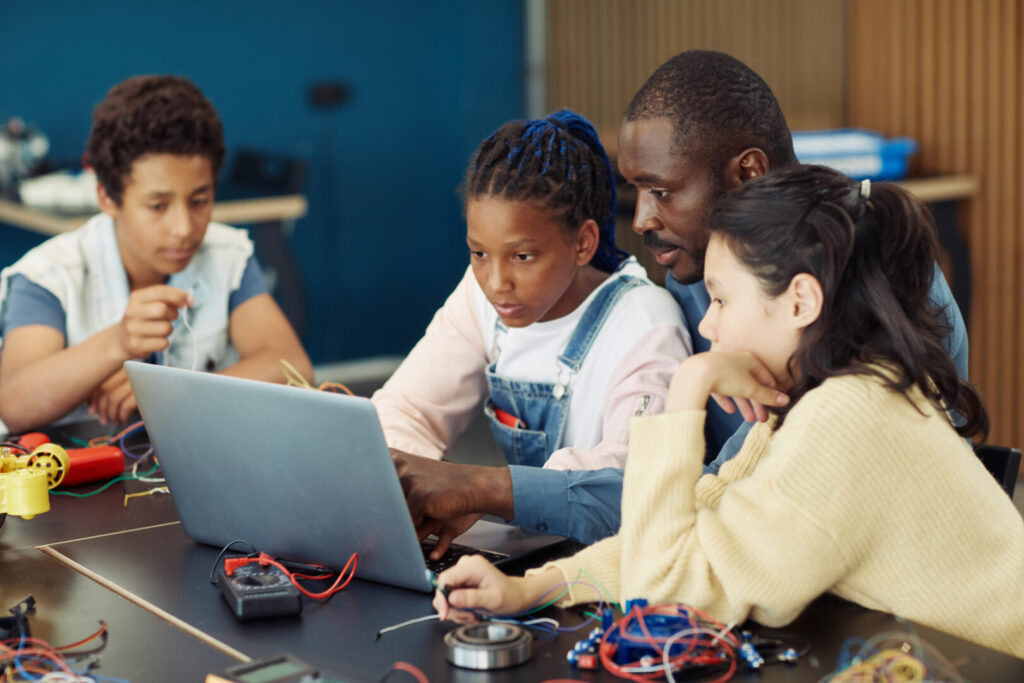
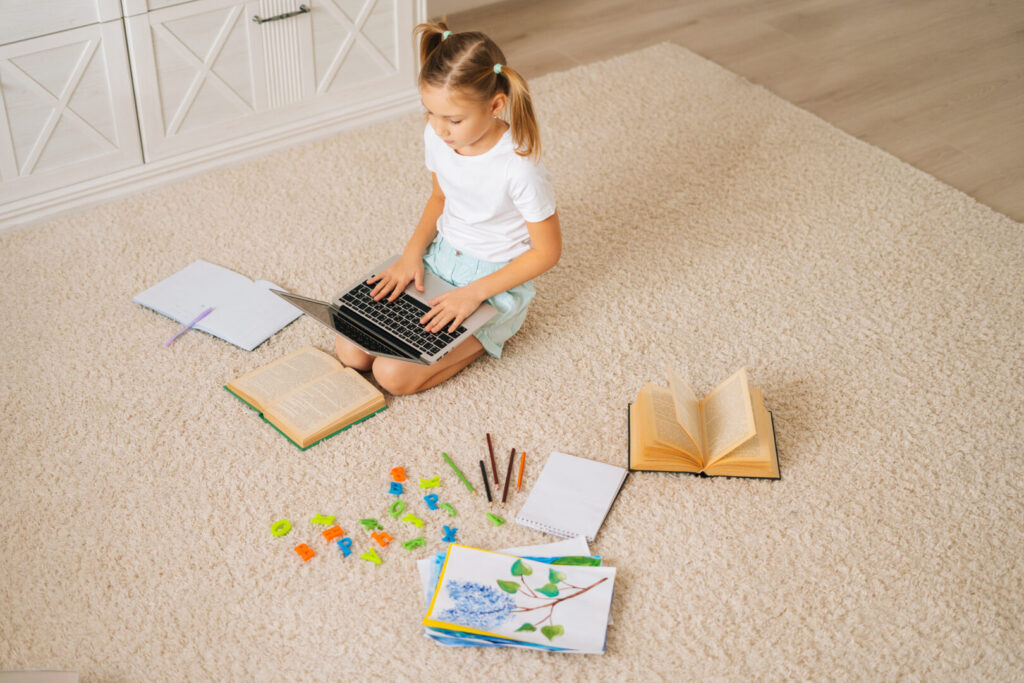
COGNITIVE DEVELOPMENT - ACQUISITION OF BASIC TECHNICAL SKILLS
In the approach to integrating and enriching the traditional educational path, Universikid’s courses teach children basic technical skills that are fundamental prerequisites for early childhood education. For example, using materials such as tempera, watercolors, or wax crayons is an essential prerequisite for learning writing.
